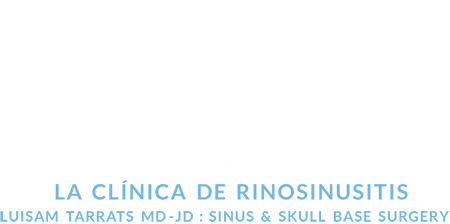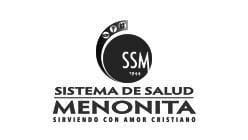FAQ
Does my rhinological condition gets treated in Puerto Rico?
Absolutely! We have the knowledge, surgical skills and technology available to provide all the care you need here in Puerto Rico. In the rare instance in which your case cannot be optimally manage here, we will refer you to the ideal provider for your individual scenario. As an active member of the American Rhinological Society, Dr.Tarrats has great professional and personal relationships with many of the world renowned leaders of this specialty.
Does Chronic Rhinosinusitis (CRS) gets cure with surgery?
The purpose of surgery in CRS is to create larger sinus cavities for better delivery of topical medication. As the name implies, this is a chronic medical condition which will require long term management for optimal results. Still, surgery is a step towards improving quality of life and to reduce the amount of oral antibiotics and systemic steroids needed every year.
Is sinus surgery painful? Do you put packings in my nose?
Every person pain threshold is different, however advances in surgical techniques have made this procedure relatively pain-free. Pain medications are given to our patient post operatively but many of our patients are comfortable with acetaminophen or no pain medication at all. I DO NOT routinely use nasal packings after surgery.
How serious can it be to have sinusitis untreated?
Sinusitis is an inflammatory condition which mostly affects quality of life. However, longstanding untreated sinusitis may result in skull base erosion causing intracranial extension of the infection with a potential for meningitis, brain abscess and death. Likewise, it may precipitate lung infections and pulmonary conditions which could be deadly.
What is a Rhinologist?
After finishing a five years residency program in Otolaryngology Head & Neck surgery the physician pursues an extra year of intensive training exclusively on rhinological problems. By focusing only on this area of ENT the Rhinologist is able to keep up-to-date with the ongoing technological advances and with the most current knowledge in this area of medicine. Even more important a Rhinologist is trained in fixing complications related to sinus surgery that are not necessary part of general ENT training. God forbids if you have a complication during surgery a Rhinologist is fully train on how to fix it.
Is there a relationship between nasal problems and Obstructive Sleep Apnea?
Obstructive sleep apnea is a multifactorial disease, however, because the nose can represent up to 80% of the airway resistance nasal treatment can reduce OSA severity or make CPAP therapy more tolerable.
Does allergic rhinitis can affect my kid asthma?
Yes! The unified airway theory establishes that problems in the nose (upper airway) can affect the lungs (lower airway). By controlling sinonasal symptoms patients can have less asthma exacerbations and even decrease the amount of medications.
Do you manage children?
We treat newborns and children with advance rhinological problems. These include: choanal atresia, congenital skull base defects with encephaloceles, nasal polyposis, benign and malignant tumors. Also, if your kid’s pediatrician believes that your child many benefit from our evaluation we will gladly participate in his/her care.
Could it be possible that my case it too complicated that I just need to learn to live like this?
The immense majority of the patient with sinonasal problems require a comprehensive approach of the different factors affecting the sinuses. It is essential to have a multidisciplinary approach to achieve the best results in many of my patients. To achieve that level of care I work closely with outstanding neurosurgeons, ophthalmologists, microvascular surgeons, head & neck surgeons and facial plastics specialists. In addition, I collaborate with an extended team of allergists, pulmonologists, a headache specialist and endocrinologists to provide the most comprehensive care for you. We an adequate team you can be help!
I feel tired all the time, can this be related to my sinusitis?
As a consequence of inflammatory mediators and dehydration chronic fatigue is a well established symptoms of chronic rhinosinusitis.
I have a sinus cancer! Can you help?
I had the privilege to train in the institution who has achieved the greatest rate of tumor control for radioresistant sinonasal malignancies in the world. The same treatment methodology and surgical management is proudly offer at La Clínica de Rinosinusitis. In order to provide your best chance for cure and survival I will directly communicate with your oncologist and radio-oncologist for the evaluation of your case in a tumor board setting to establish the best individualize care for you.
I have a sinonasal tumor and my doctor told me that I need to have my face cut to remove it?
Open approaches using a bicoronal incision, a lateral rhinotomy or other trans-facial approaches are absolutely legitimate and can achieve adequate tumor resection. However, technological advances and adequate training allows me to remove the majority of these tumors through the nose completely avoiding facial scars.
How does being a lawyer influences your medical practice?
My legal background makes me extremely aware of the autonomy of my patients. As a consequence I take extremely seriously the process of informed consent and the importance of patient education. In my practice I am very transparent about the implications of a diagnosis and the inherent risks of the medical and surgical recommendations I propose.
What is a rhinological emergency?
Is a serious, unexpected, and often dangerous situation requiring immediate action by a Rhinologist & Skull Base surgeon.
- Bening or malignant sinonasal tumors causing ocular or intracranial symptoms as a consequence of invasion or compression.
- Sudden loss of olfaction.
- Acute sinus infections causing an orbital complication, meningitis or brain abscess.
- Constant excessive nasal bleeding resulting on abnormal vital signs or alteration on consciousness.
- Cerebrospinal fluid rhinorrhea.
- Invasive fungal sinusitis on a immunosuppressed individual.
- Congenital anomalies.( Ex. choanal atresia, encephaloceles)










